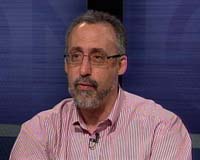Emeritus Professor
College of Letters & Science l Department of Political Science
Before becoming an academic, Professor Schweber practiced law for 5 years in both the public and private sectors. He holds graduate degrees in Law (JD), Government (PhD), and History (MA). Schweber is the author of four books and more than twenty articles on a range of topics having to do with law and legal history, constitutional law, and political philosophy. He is the editor of the journal Constitutional Studies and a frequent contributor to blogs and publications.
Only available for virtual talks.
Talks:
Is It Time to Rewrite the Constitution?
The first question is, what is a constitution supposed to do? In this talk I propose three answers: to provide a system for translating majoritarian preference in to policy, to limit the exercise of government powers, and to create a language for talking about our deepest political questions. The U.S. Constitution is failing on all three counts…
The First Amendment and its Limits
Everyone is in favor of free speech, but no one actually believes all speech should be equally protected: “give me your wallet or I’ll shoot you” is a good example. What have the courts actually said about what kinds of speech are protected and when, and what are the problems with those standards?
Free Speech on Campus: It's Complicated
Free speech issues can arise anywhere, but lately they have proliferated on college campuses. Much of the discussion on all parts of the political spectrum has been ill informed. The real answer is, it’s complicated.
Constitutional Interpretation: Theory, Practice, and History
What, exactly, are “originalism,” “textualism,” and “living constitutionalism”? What do these different theories look like in practice, and when did they become an important part of American constitutional thinking? Justice Scalia once said, “I’m an originalist, but I’m not nuts.” What did he mean?
Was Marx Right? The Future of the American Political Economy
Karl Marx famously predicted that the collapse of capitalism was inevitable as inequalities of wealth would become greater and greater and the boom-and-bust cycle would become ever more stable. The period from the 1930s through 2008 seemed to prove him wrong–but was that a new normal, or merely an exception to an historical rule that is now coming back to haunt us?
The Future of the Supreme Court After the Election of 2016
The election of President Trump has led to the appointment of Justice Neil Gorsuch and the abolition of the filibuster in the Senate for Supreme Court nominations. What will be the likely impact of that appointment on the development of constitutional doctrine, the politics of Supreme Court nominations, and the future of the Court? How many more picks is President Trump likely to get, and what might be the impact of their appointments going forward?
